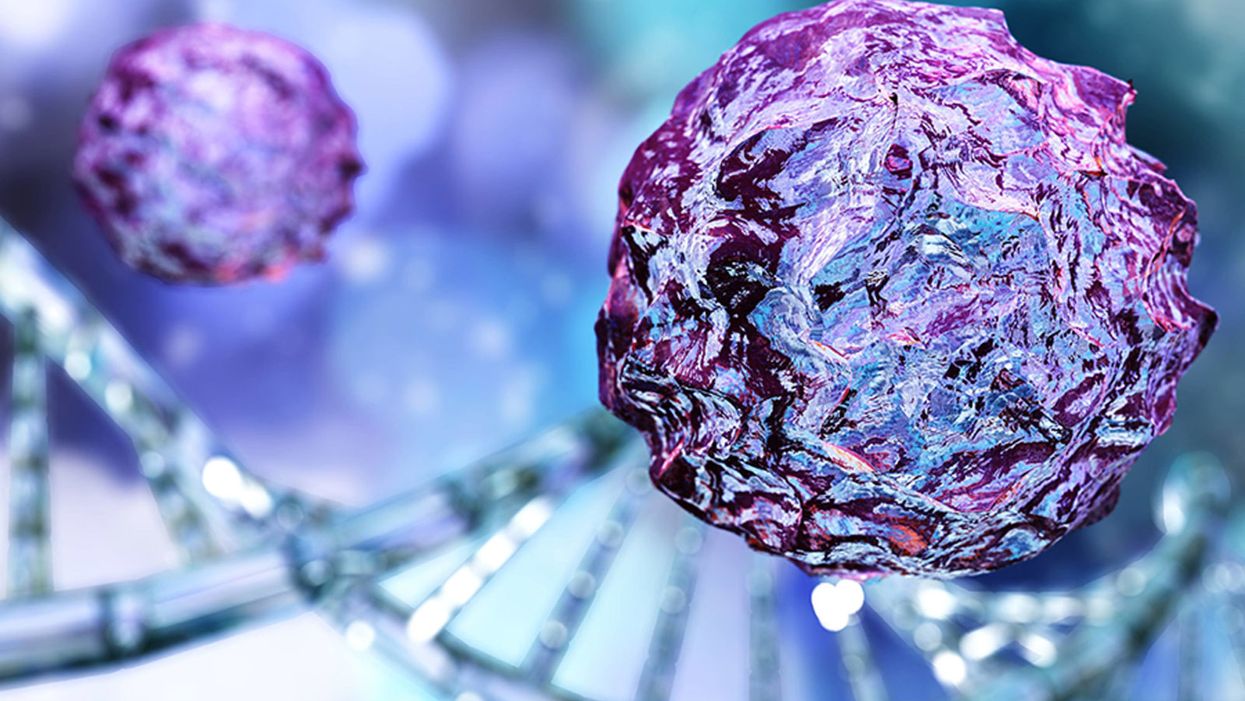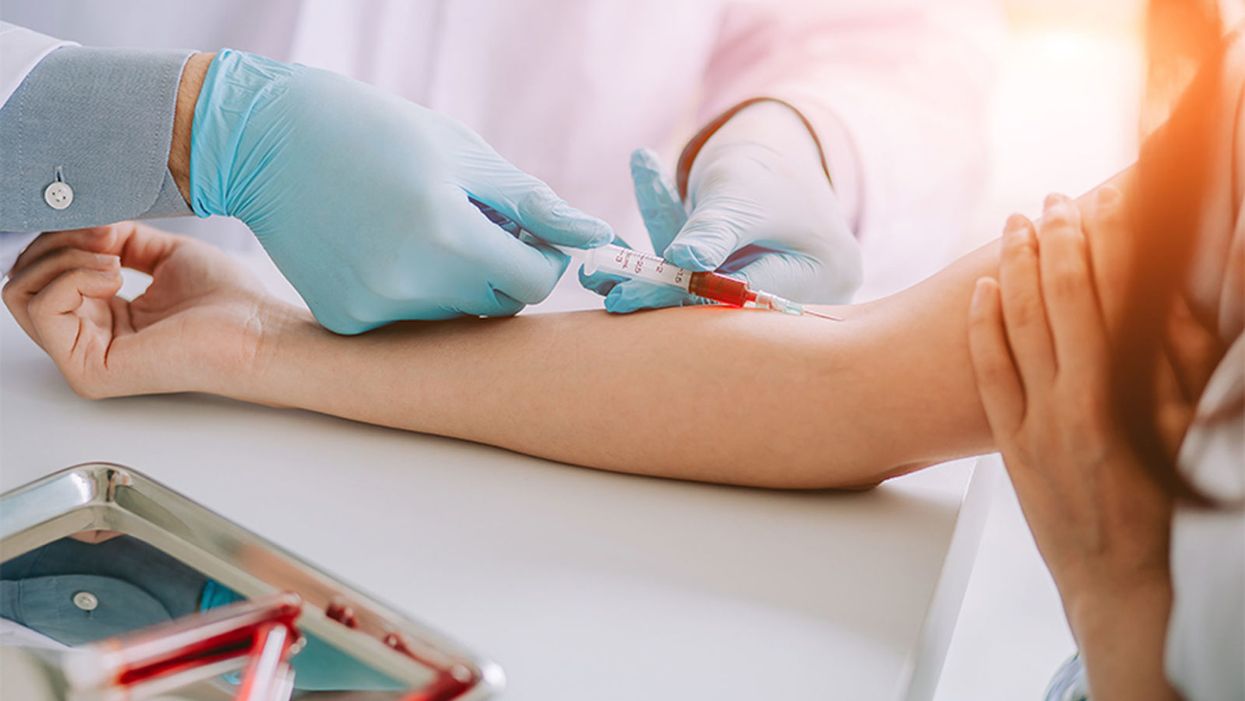Dec. 17th Event: The Latest on Omicron, Boosters, and Immunity
Kira Peikoff was the editor-in-chief of Leaps.org from 2017 to 2021. As a journalist, her work has appeared in The New York Times, Newsweek, Nautilus, Popular Mechanics, The New York Academy of Sciences, and other outlets. She is also the author of four suspense novels that explore controversial issues arising from scientific innovation: Living Proof, No Time to Die, Die Again Tomorrow, and Mother Knows Best. Peikoff holds a B.A. in Journalism from New York University and an M.S. in Bioethics from Columbia University. She lives in New Jersey with her husband and two young sons. Follow her on Twitter @KiraPeikoff.
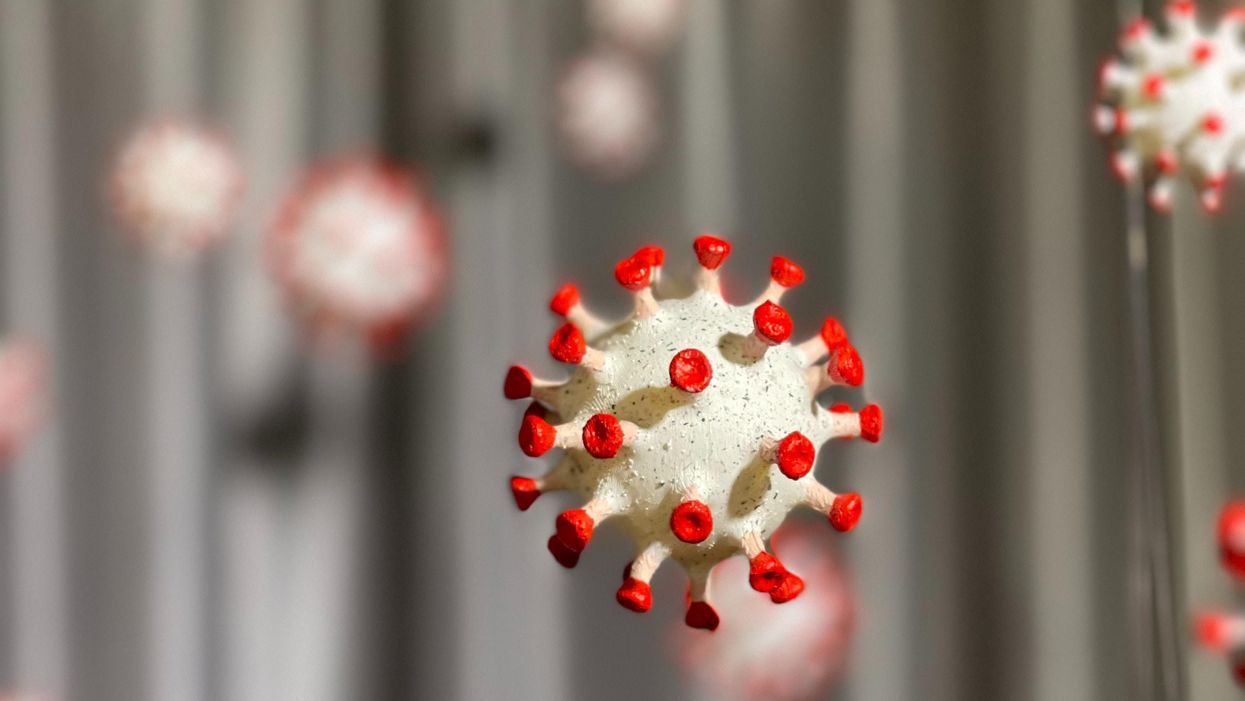
The Omicron variant poses new uncertainty for the vaccines, which four leading experts will address during our virtual event on December 17th, 2021.
This virtual event will convene leading scientific and medical experts to discuss the most pressing questions around the new Omicron variant, including what we know so far about its ability to evade COVID-19 vaccines, the role of boosters in eliciting heightened immunity, and the science behind variants and vaccines. A public Q&A will follow the expert discussion.
EVENT INFORMATION:
Date: Friday Dec 17, 2021
2:00pm - 3:30pm EST
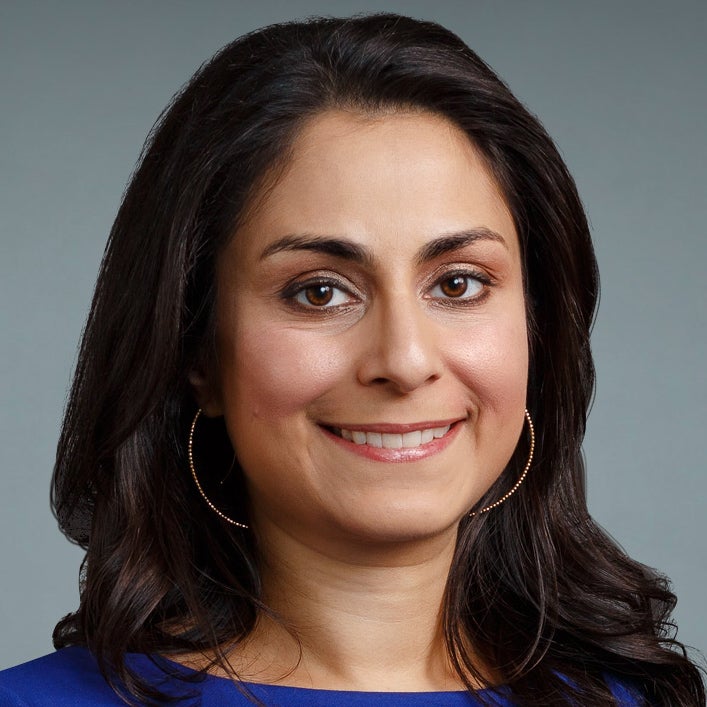
Dr. Céline Gounder, MD, ScM, is the CEO/President/Founder of Just Human Productions, a non-profit multimedia organization. She is also the host and producer of American Diagnosis, a podcast on health and social justice, and Epidemic, a podcast about infectious disease epidemics and pandemics. She served on the Biden-Harris Transition COVID-19 Advisory Board.
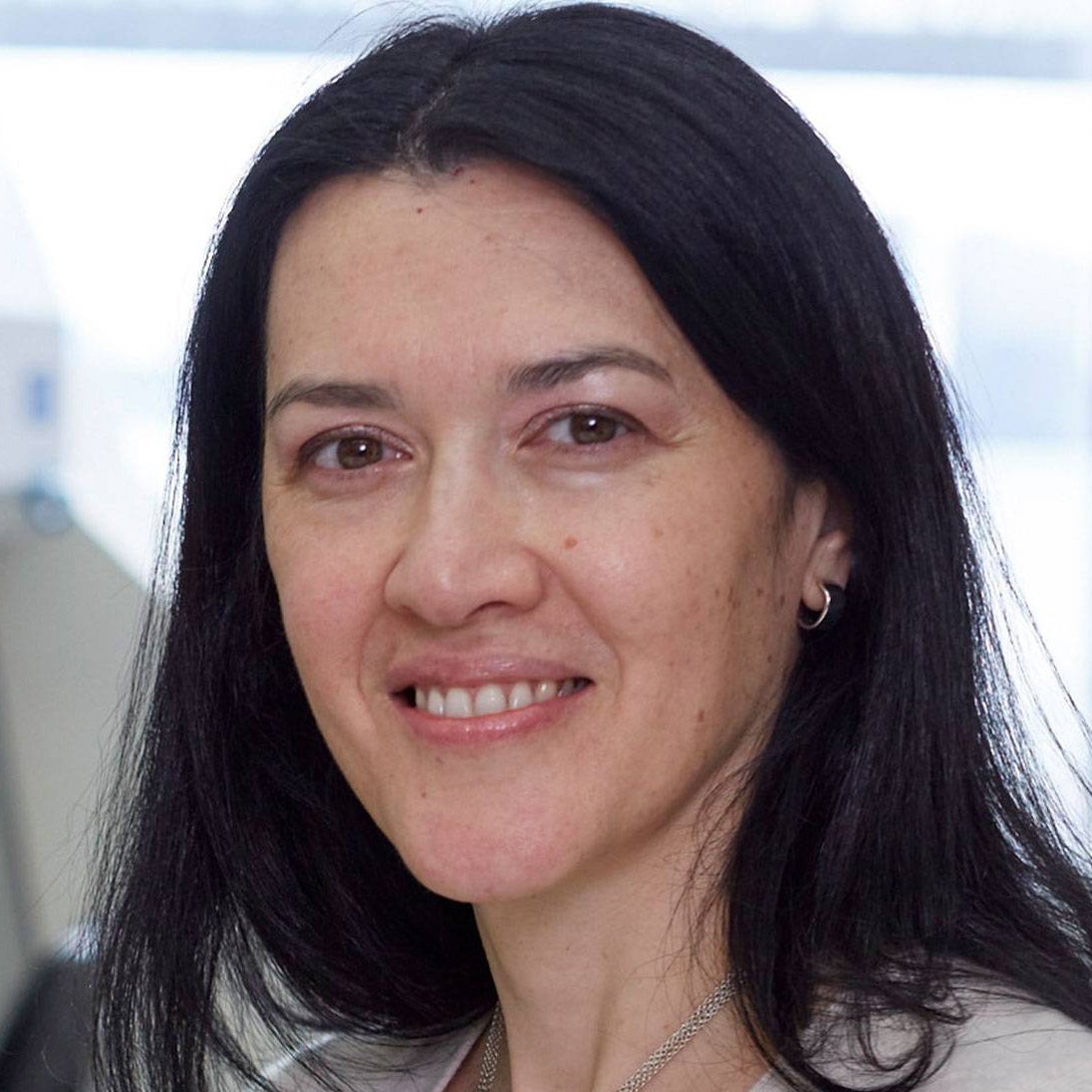 Dr. Theodora Hatziioannou, Ph.D., is a Research Associate Professor in the Laboratory of Retrovirology at The Rockefeller University. Her research includes identifying plasma samples from recovered COVID-19 patients that contain antibodies capable of neutralizing the SARS-CoV-2 coronavirus.
Dr. Theodora Hatziioannou, Ph.D., is a Research Associate Professor in the Laboratory of Retrovirology at The Rockefeller University. Her research includes identifying plasma samples from recovered COVID-19 patients that contain antibodies capable of neutralizing the SARS-CoV-2 coronavirus.
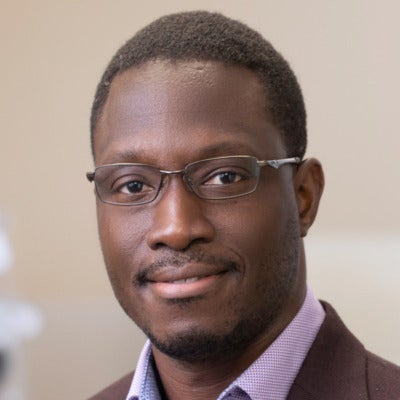
Dr. Onyema Ogbuagu, MBBCh, is an Associate Professor at Yale School of Medicine and an infectious disease specialist who treats COVID-19 patients and leads Yale’s clinical studies around COVID-19. He ran Yale’s trial of the Pfizer/BioNTech vaccine.
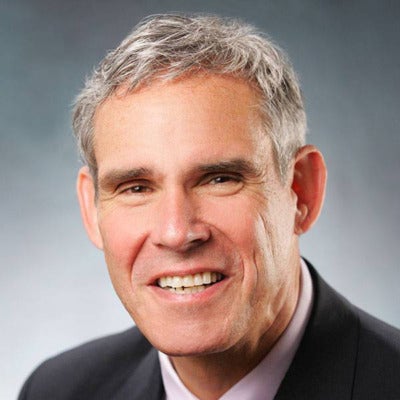
Dr. Eric Topol, M.D., is a cardiologist, scientist, professor of molecular medicine, and the director and founder of Scripps Research Translational Institute. He has led clinical trials in over 40 countries with over 200,000 patients and pioneered the development of many routinely used medications.
This event is the fourth of a four-part series co-hosted by Leaps.org, the Aspen Institute Science & Society Program, and the Sabin–Aspen Vaccine Science & Policy Group, with generous support from the Gordon and Betty Moore Foundation and the Howard Hughes Medical Institute.
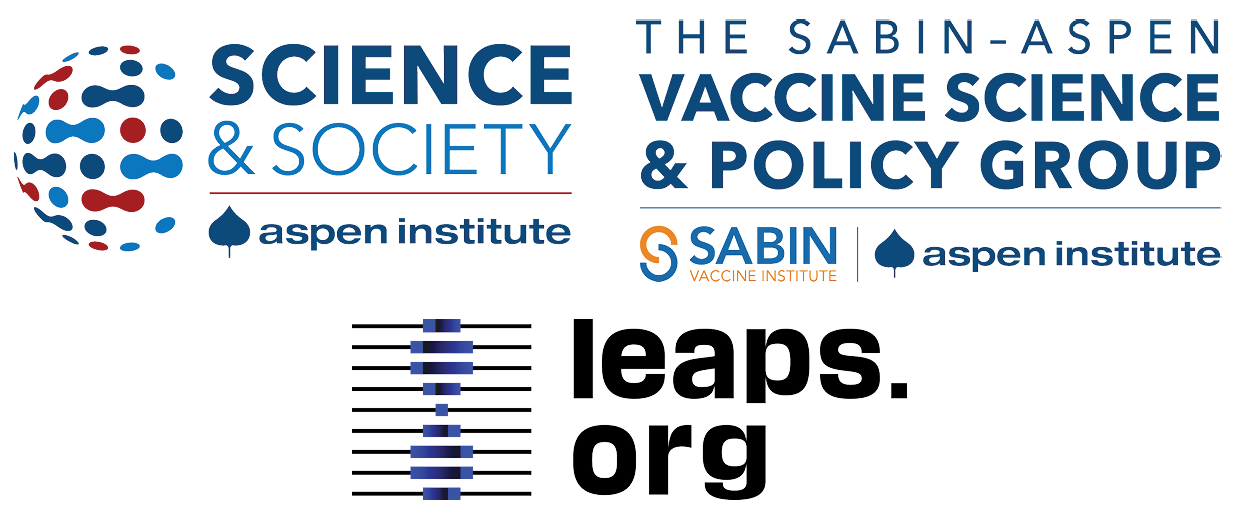
Kira Peikoff was the editor-in-chief of Leaps.org from 2017 to 2021. As a journalist, her work has appeared in The New York Times, Newsweek, Nautilus, Popular Mechanics, The New York Academy of Sciences, and other outlets. She is also the author of four suspense novels that explore controversial issues arising from scientific innovation: Living Proof, No Time to Die, Die Again Tomorrow, and Mother Knows Best. Peikoff holds a B.A. in Journalism from New York University and an M.S. in Bioethics from Columbia University. She lives in New Jersey with her husband and two young sons. Follow her on Twitter @KiraPeikoff.
Stem Cell Therapy for COVID-19 Is Gaining Steam in China, But Some Skeptical Scientists Urge Caution
31 COVID-19 patients in a Beijing trial have shown improvement after stem cell therapy, but there was no control group.
Over the past two months, China's frantic search for an effective COVID-19 treatment has seen doctors trying everything from influenza drugs to traditional herbal remedies and even acupuncture, in a bid to help patients suffering from coronavirus-induced pneumonia.
"This treatment is particularly aimed at older patients who are seriously ill. These kinds of patients are in the danger zone."
Since mid February, one approach that has gained increasing traction is stem cell therapies, treatments that have often been viewed as a potential panacea by desperate patients suffering from degenerative incurable conditions ranging from Parkinson's to ALS. In many of these diseases, reality has yet to match the hype.
In COVID-19, there are hopes it might, though some experts are warning not to count on it. At Beijing's YouAn Hospital, doctors have been treating patients at various stages of the illness with intravenous infusions of so-called mesenchymal stem cells taken from umbilical cord tissue, as part of an ongoing clinical trial since January 21. The outcomes of the initial seven patients – published last month – appeared promising and the trial has since been expanded to 31 patients according to Dr. Kunlin Jin, a researcher at University of North Texas Health Science Center who is collaborating with the doctors in Beijing.
"Sixteen of these patients had mild symptoms, eight are severe, and seven are critically severe," Jin told leapsmag. "But all patients have shown improvements in lung function following the treatment, based on CT scans -- most of them in the first three days and seven have now been completely discharged from hospital. This treatment is particularly aimed at older patients who are seriously ill. These kinds of patients are in the danger zone; it's essential that they receive treatment, but right now we have nothing for most of them. No drugs or anything."
The apparent success of the very small Beijing trial has since led to a nationwide initiative to fast-track stem cell therapies for COVID-19. Across China, there are currently 36 clinical trials intending to use mesenchymal stem cells to treat COVID-19 patients that are either in the planning or recruiting phases. The Chinese Medical Association has now issued guidelines to standardize stem cell treatment for COVID-19, while Zhang Xinmin, an official in China's Ministry of Science and Technology, revealed in a press conference last week that a stem cell-based drug has been approved for clinical trials.
The thinking behind why stem cells could be a fast-acting and effective treatment is due to the nature of COVID-19. The thousands of fatalities worldwide are not from the virus directly, but from a dysfunctional immune response to the infection. Patients die because their respiratory systems become overwhelmed by a storm of inflammatory molecules called cytokines, causing lung damage and failure. However, studies in mice have long shown that stem cells have anti-inflammatory properties with the ability to switch off such cytokine storms, reducing such virus-induced lung injuries.
"There has been an enormous amount of hype about these cells, and there is scant scientific evidence that they have any therapeutic effect in any situation. "
"The therapy can inhibit the overactivation of the immune system and promote repair by improving the pulmonary microenvironment and improve lung function," explained Wei Hou, one of the doctors conducting the trial at YouAn Hospital.
However not everyone is convinced, citing the small number of patients treated to date, and potential risks from such therapy. "We just don't know enough to believe that stem cells might be helpful with COVID-19," said Paul Knoepfler, professor of cell biology at UC Davis. "The new stem cell studies are too small and lack controls, making it impossible to come to any solid conclusions. The chance of benefit is low based on the little we know so far and there are going to be risks that are hard to pin down. For instance, what if a stem cell infusion impairs some kind of needed immune response?"
Other scientists are even more skeptical. "I am concerned about all treatments that use mesenchymal stem cells," warned Jeanne Loring, the Director of the Center for Regenerative Medicine at Scripps Research in La Jolla, Calif. "There has been an enormous amount of hype about these cells, and there is scant scientific evidence that they have any therapeutic effect in any situation. Typically, these treatments are offered to people who have diseases without cures. I'm certain that there will be evidence-based treatments for COVID19, but I understand that they are not yet available, people are desperate, and they will try anything. I hope the sick are not taken advantage of because of their desperation."
Despite such concerns, the steadily rising death toll from COVID-19 means other nations are preparing to proceed with their own clinical trials of mesenchymal stem cells. Jin said he has been contacted by researchers and clinicians around the world seeking information on how to conduct their own trials, with the University of Cambridge's Stem Cell Institute in the U.K. reportedly looking to initiate a trial.
The scale of the global emergency has seen governments repeatedly calling on the corporate world to invest in the search for a cure, and the Australian company Mesoblast – a global leader in cell-based therapies for a range of diseases – are expecting to receive the green light to initiate clinical trials of their own stem cell based product against COVID-19.
"We're talking to at least three major governments," said Silviu Itescu, CEO and Managing Director of Mesoblast. "We are working with groups in Australia, the U.S. and the U.K., and I expect there'll be trials starting imminently in all those jurisdictions."
Itescu is bullish that the therapy has a good chance of proving effective, as it recently successfully completed Phase III trials for severe steroid-refractory acute graft versus host disease (GVHD) – a condition which leads to a very similar disease profile to COVID-19.
"The exact same cytokine profile is occurring in the lungs of COVID-19 infected patients as in GVHD which is destructive to the local lung environment," he said. "If our cells are able to target that in GVHD, they ought to be able to switch off the cytokine response in COVID lung disease as well."
"What we should be focusing on now is not the possible boost to the stem cell field, but rather doing rigorous science to test whether stem cells can help COVID-19 patients."
Jin is hopeful that if the imminent trials yield successful results, the U.S. FDA could fast-track mesenchymal stem cells as an approved emergency therapy for COVID-19. However, Knoepfler cautions that there is a need for far more concrete and widespread proof of the benefit before regulatory bodies start ushering through the green light.
"What we should be focusing on now is not the possible boost to the stem cell field, but rather doing rigorous science to test whether stem cells can help COVID-19 patients," he said. "During a pandemic, it's reasonable to do some testing of unproven interventions like stem cells in small studies, but results from them should be discussed in a sober, conservative manner until there is more evidence."
BREAKING: The First U.S. Test to Detect If a Person Has Potential Immunity to COVID-19 Was Just Developed
Testing for immunity to COVID-19 will allow frontline health workers to safely go back to work, knowing they can't spread the disease.
While testing for COVID-19 ramps up around the country, there's another kind of testing that will prove equally important to combating the pandemic: one that can detect whether someone has already been infected.
"The idea is that this assay can be established anywhere in the world following these steps."
Why is this important? As former FDA commissioner Scott Gottlieb wrote in today's Wall Street Journal: "If a sizable portion of a local community has some protection, authorities can be more confident in relying less on invasive measures. Once deployed, serological tests are cheap, straightforward, and easy to scale."
Now, a microbiology lab at the Icahn School of Medicine at Mount Sinai, led by Dr. Florian Krammer, has just announced the development of this serological test. Leapsmag spoke with Daniel Stadlbauer, a post-doctoral fellow in the lab who helped lead the work.
Is yours the first serological test available?
They did something similar in South Korea. In the U.S., it's the first of these tests.
How close are we to rolling this test out to the public?
Last week, we started this process and we finished the protocol today. Mount Sinai is trying to roll this out in the next few days in the clinic to see which patients have been infected with coronavirus recently or have been infected at all.
The protocol we uploaded today can be used as a template for other research labs or hospitals to follow the steps we provided and they should then be able to set up the antibody test. The idea is that this assay can be established anywhere in the world following these steps.
Are there any bottlenecks to getting this rolled out – supply chain or regulation obstacles?
There are no regulations that say you can't do it. Research labs and hospitals for sure can do it. I'm not aware of supply chain issues because you need basic lab equipment and materials, but I don't think those are in short supply right now.
How does the test work?
People coming to the hospital who are suspected to have infection with coronavirus, their blood gets taken routinely. This blood can be used for our test, too. The test will tell you if this person has antibodies against coronavirus. You can also test the blood of people who are not currently sick to see if this person was infected, say, a month ago. If there are antibodies in the blood, you can say this person is probably immune to getting it again.
It will be essential workers who need to be tested first, like nurses, firefighters, and doctors. It will be great to know that they would not put themselves or others at risk by going back to work because they cannot spread the disease.
"People probably cannot get reinfected once they mount a good immune response and have good antibody levels."
How soon after infection does the test detect if you have antibodies?
Usually after 7 days of infection.
How long do the antibodies last to confer immunity?
Those studies need to be done – right now it's unclear. People probably cannot get reinfected once they mount a good immune response and have good antibody levels. How long those level last still needs to be investigated. But they won't get reinfected in the next, I would say, six months.
How accurate is the test?
Very accurate. The advantage – which is bad for us but good for the test – is that humans have no baseline immunity to this coronavirus. It means that when you have not been infected, you have pretty much no antibodies, which is why it can spread so easily. But once you have antibodies in your blood, we can detect them and it's a clear difference between antibodies or no antibodies.
Where should hospitals and labs go for more information on how to build their own tests from your work?
They should check out our lab website to find the detailed protocol to download.
If I am a person who just wants to take this test to find out if I've already been infected, what should I do?
It will be done soon in the clinical setting. I don't know yet how widely it will be available. The more research labs and hospitals that set up this testing, the more people who can be tested in the future.
Kira Peikoff was the editor-in-chief of Leaps.org from 2017 to 2021. As a journalist, her work has appeared in The New York Times, Newsweek, Nautilus, Popular Mechanics, The New York Academy of Sciences, and other outlets. She is also the author of four suspense novels that explore controversial issues arising from scientific innovation: Living Proof, No Time to Die, Die Again Tomorrow, and Mother Knows Best. Peikoff holds a B.A. in Journalism from New York University and an M.S. in Bioethics from Columbia University. She lives in New Jersey with her husband and two young sons. Follow her on Twitter @KiraPeikoff.
